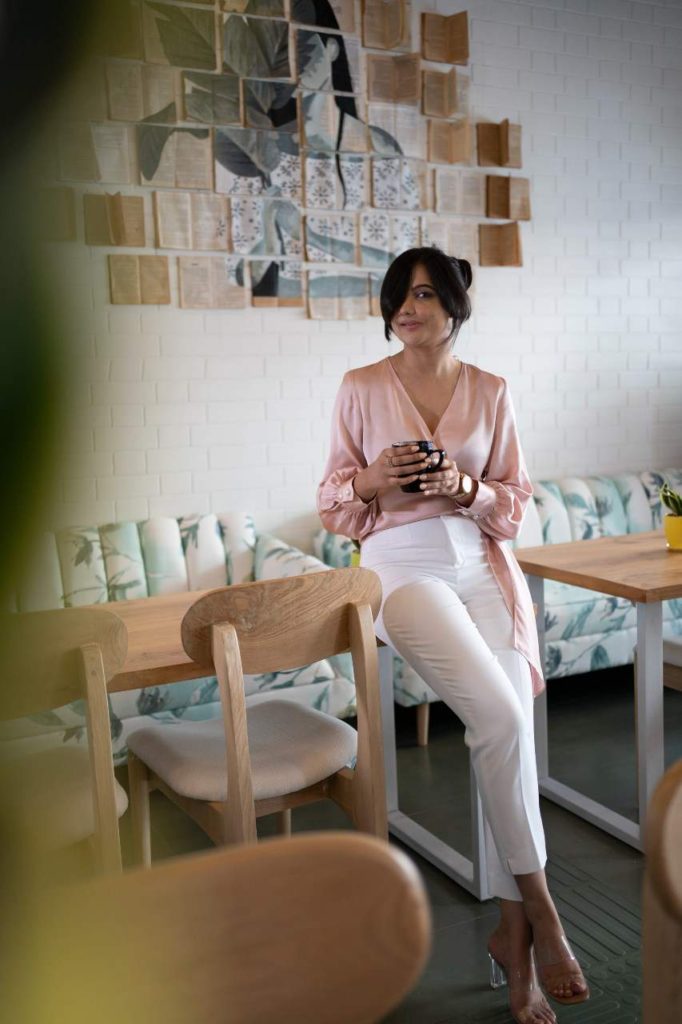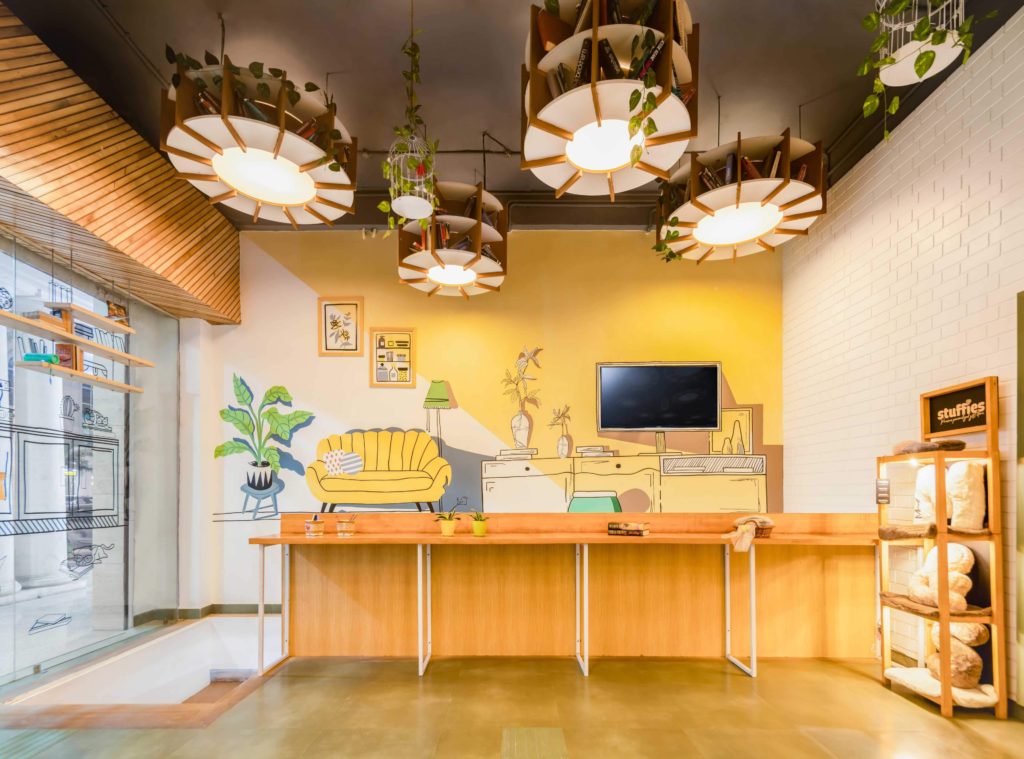This book cafe in Delhi has been designed for the diff-abled with utmost care, keeping in mind easy movement of wheelchairs, access to washrooms, tactile tiles for the visually-impaired and much more.
Delhi-based architect and interior designer Aatika Manzar ensures that every space she designs has a story to tell. Even when she is working on commercial spaces, her designs have a purpose. And that thought is what exudes through her latest project, a one-of-a-kind book cafe in Delhi called Merak, India’s first accessible-to-all book cafe. Merak was opened last year during the first wave of the pandemic in the NCR region and its aim is to fulfill the lack of recreational spaces for the differently-abled in India.
Telling us how the idea came about, the 32-year-old architect shares, “One of my clients came up with a concept of having a space for both children and parents at Omaxe World Street, which is mostly surrounded by schools. This concept lent itself to my idea. Whenever people go out with their children to a cafe or restaurant, these kids do not have anything to look forward to. So, we thought of creating a space where children would have a play zone and the other segment would be a book cafe, which the adults can use. Parents could also have their much-needed ‘me time’, relax and read a book while their kids play downstairs in the basement. That’s when I suggested that we could actually try and make this book café for ‘all’ in its truest sense. I was born with monocular vision and I understand how people with disabilities feel, they need help to move around and don’t really get the opportunity to go out and simply enjoy a cup of coffee. Hence, I designed this place keeping in mind the accessibility and usage for differently-abled and the visually impaired.”

The book cafe has been designed with the utmost care, keeping in mind the easy movement of wheelchairs, access to washrooms, tactile tiles for the visually impaired, and much more. “We have the menu in Braille so that our diff-abled customers have no difficulty in ordering food for themselves. I have a family friend who cannot speak or hear and I was told he likes to visit CCD as they have staff who understand sign language. He can order for himself there. It might sound really tiny for someone who does everything by themselves, but for the diff-abled, it’s a big deal to be able to order for themselves without support. We wanted Merak to give them that opportunity,” adds Aatika.
She explains how they have ensured accessibility and comfort while designing the cafe so that everyone has a good time there. The furniture is placed with an ample amount of circulation space for the easy movement of wheelchairs. The flooring is designed with tactile tiles so that the visually impaired can move around without taking any help or support. “The toilets are designed with proper bars as per the height of a wheelchair; even the tap and soap dispenser has been placed according to the wheelchair height. The cafe has ramps for wheelchair-bound individuals. Mirrors are tilted at an angle for better visibility of a wheelchair user. The walls too have tactile tiles — two different types, a dot to give them a sense of where they should begin walking and an arrow to give them a sense of direction as to where to go,” she pitches in. The cafe also has an entire collection of books that are available in Braille.
Aatika had been aware of this need to belong and to be independent as she was born with monocular vision. She also had a few other physical deformities, which were rectified with the help of about 20 surgeries. However, none of this stopped her from achieving her dreams. “I had a very supportive family and I am grateful to them for not treating me differently. They helped me overcome my condition, I definitely had to work harder because of monocular vision, but it all worked out in the end,” adds the 32-year-old, who studied architecture at Jamia Millia Islamia and a master’s degree in Interior Designing at Birmingham City University in the UK. Aatika opened her own design studio, Aatika Manzar Designs, in March 2017. She has already worked on more than 150 projects, including commercial spaces, restaurants, and departmental stores across the country. But Merak will always be closest to her heart. “We have been able to make a change in the society through this cafe, now I can convince more of my clients to install ramps in their spaces. I will try to make all my projects as inclusive as possible,” concludes Aatika.
Article Credit: edexlive
